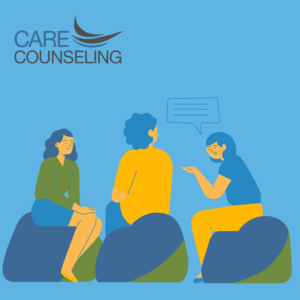 We are all unique. We have our cultural histories, identities, traditions, values, beliefs, and lived experiences that shape our lives.
We are all unique. We have our cultural histories, identities, traditions, values, beliefs, and lived experiences that shape our lives.
Many people have stories of seeking and finding acceptance and approval within their journey as well as stories of experiencing disapproval and judgment—either within themselves or from others. When you have had life experiences in which there is often stigma and shame such as sexual trauma, mental illness, substance abuse, or legal issues you may find yourself experiencing more judgment than others.
Even if you consider yourself functioning well, having a “normal” childhood, coping generally well with your mental health, with no history of physical or sexual abuse, no significant struggles with substances, and no history of legal issues, you are still prone to disapproval and judgment from others. In fact, you may find that there is more pressure to gain others’ acceptance and approval in areas such as how you express your identities, who you live with, what you do for a living/ how “successful” you are, and progress in meeting milestones.
When there is acceptance and approval, there is little room for disapproval and judgment. It feels good to know that your thoughts and feelings are valid. Someone in your life may not approve of all your life choices, but that is OK. We all get to decide. A choice may align with one person’s values may or may not align with another person’s values. Yet, feeling loved and supported is so important, especially when disapproval and judgment are coming from someone whose opinion matters the most. For many people, this comes from a parent or primary caregiver figure, significant role model, or intimate partner.
Parents and caregivers are not going to approve of all their child’s life choices. Some choices may go against beliefs, values, their religion, and social or cultural norms. It can be challenging to have conversations and to know what to say. The relationship is such an important foundation; unconditional love does have boundaries. Working with a therapist can help improve functioning in the family and restore relationships while setting healthy limits rather than overreacting and responding to extremes (e.g., overbearing discipline to a lack of involvement/ “hands-off” approach).
In turn, a partner is not going to approve or accept certain aspects of the relationship. Partner(s) may have a response to disclosures of the past and decisions that impact the relationship such as those surrounding sex and money. Partner(s) may also have a response to struggles with mental health and substance use, particularly when these areas are not being managed well and are directly impacting the relationship. Topics may resolve over time with communication, healthy boundaries, and supportive resources. The relationship may become stronger or may dissolve and end. Couples therapy can help facilitate this process.
When you are your worst inner critic and you are harsh on yourself, practicing forgiveness and self-compassion can help. For adult children, it can take time to learn to trust your “own voice” and place more value on your own decisions, and the decisions of others. It is important to prioritize your own well-being, and focus on strengths, and the present moment. If you would like to learn how to do this, our therapists at CARE Counseling are experts in these areas. https://care-clinics.com/
Written By: Charlotte Johnson, MA, LPCC
We’re Here to help
Our wellness experts will be happy to take care of you. You can CLICK HERE to schedule an appointment now or call (612)223-8898.
Meet Clinicians
We’re united by our commitment to providing effective, relevant, and innovative mental health support at all stages of your journey. Click Here to find a therapist or find out more about who we are, where we come from, and how we live out CARE’s mission every day.
The professionals at CARE are actively collecting and creating resources to help with what you need and address frequently asked questions. We’re Here for You.



